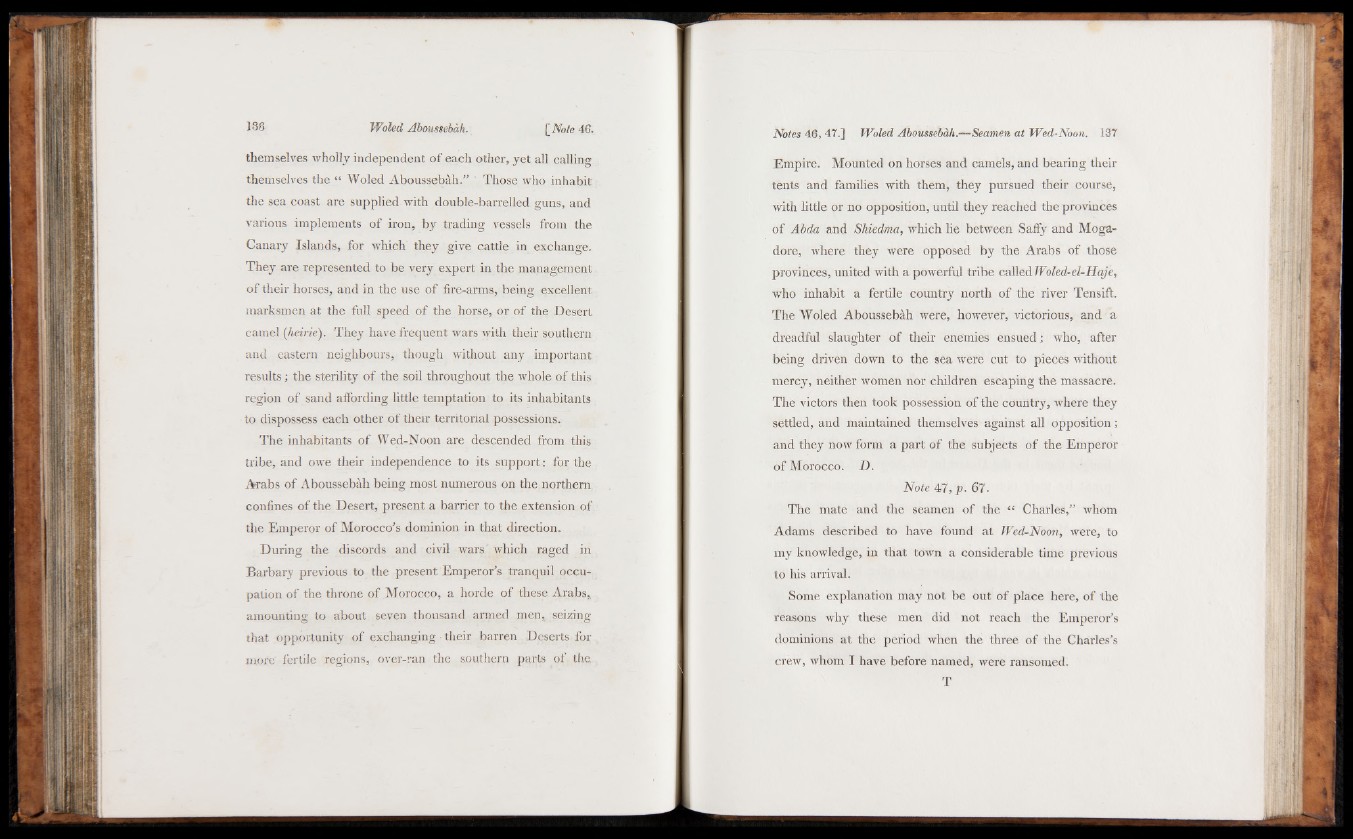
themselves wholly independent of each other, yet all calling
themselves the “ Woled Aboussebah.” ' Those who inhabit
the sea coast are supplied with double-barrelled guns, and
various implements of iron, by trading vessels from the
Canary Islands, for which they give cattle in exchange.
They are represented to be very expert in the management
of their horses, and in the use of fire-arms, being excellent
marksmen at the full speed of the horse, or of the Desert
camel (heirie). They have frequent wars with their southern
and eastern neighbours, though without any important
results; the sterility of the soil throughout the whole of this
region of sand affording little temptation to its inhabitants
to dispossess each other of their territorial possessions.
The inhabitants of Wed-Noon are descended from this
tribe, and owe their independence to its support: for the
Arabs of Aboussebah being most numerous on the northern
confines of the Desert, present a barrier to the extension of
the Emperor of Morocco’s dominion in that direction.
During the discords and civil wars' which raged in
Barbary previous to the present Emperor’s tranquil occupation
of the throne of Morocco, a horde of these Arabs,,
amounting to about seven thousand armed men, seizing
that opportunity of exchanging ■ their barren Deserts for
more fertile regions, over-ran the southern parts of the
Empire. Mounted on horses and camels, and bearing their
tents and families with them, they pursued their course,
with little or no opposition, until they reached the provinces
of Abda and Shiedma, which lie between Saffy and Moga-
dore, where they were opposed by the Arabs of those
provinces, united with a powerful tribe called Woled-el-Haje,
who inhabit a fertile country north of the river Tensift.
The Woled Aboussebah were, however, victorious, and a
dreadful slaughter of their enemies ensued; who, after
being driven down to the sea were cut to pieces without
mercy, neither women nor children escaping the massacre.
The victors then took possession of the country, where they
settled, and maintained themselves against all opposition;
and they now form a part of the subjects of the Emperor
of Morocco. D.
Note 47, p. 67.
The mate and the seamen of the “ Charles,” whom
Adams described to have found at Wed-Noon, were, to
my knowledge, in that town a considerable time previous
to his arrival.
Some explanation may not be out of place here, of the
reasons why these men did not reach the Emperor’s
dominions at the period when the three of the Charles’s
crew, whom I have before named, were ransomed.
T